Change your eating, change your life!

Like most writers, I’m an avid reader. I especially read lots of nutrition books. I do like a classic, well-written overview on a specific topic and the odd faddish diet book (just to see what others are reading).
Here’s a Baker’s Dozen (13) of nutrition books and related cookbooks that can improve your health and wellbeing this year.
Changing your eating really can change your life!
We’re told that 2020, and the COVID lockdowns have had negative implications for our eating habits, our weight and our mental and general wellbeing.
These 13 books can help you turn things around. They’re all good reads and make healthy eating easier, which is something I’ve championed for many decades!
1. Brain Changer – Felice Jacka
I reviewed the study behind Felice Jacka’s book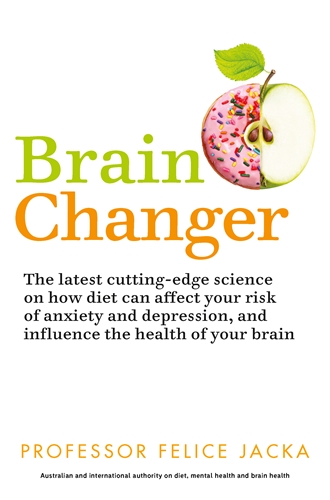 , Brain Changer, where a link was found between a healthy diet — a modified Mediterranean diet (nicknamed the ModiMed Diet) — and the likelihood of mental disorders such as anxiety and depression.
, Brain Changer, where a link was found between a healthy diet — a modified Mediterranean diet (nicknamed the ModiMed Diet) — and the likelihood of mental disorders such as anxiety and depression.
Professor Felice Jacka is well qualified to study diet and mental health problems, being the director of the Food and Mood Centre at Deakin University in Australia.
Felice set out to discover the link between food and mental wellbeing using rigorous scientific method. What she found fundamentally changes the way we think about the brain, and the importance of the nutrition-mental health link.
This is not a diet book to help you on the weight scales. This is a guide to good habits to save your brain and to optimise your brain health and mental wellbeing at every stage of life.
2. Better Brain Food - Ngaire Hobbins and Michelle Crawford
My colleag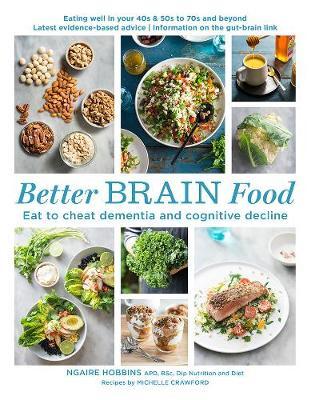 ue dietitian Ngaire Hobbins, an international authority on nutrition for aged care and dementia, and her book presents a compelling argument that the food you eat can make a big difference to your quality of life as you age. On average, we can expect to live 10 or 20 years longer than our grandparents' generation.
ue dietitian Ngaire Hobbins, an international authority on nutrition for aged care and dementia, and her book presents a compelling argument that the food you eat can make a big difference to your quality of life as you age. On average, we can expect to live 10 or 20 years longer than our grandparents' generation.
Ngaire’s passion lies in supporting all older people to enjoy independent, productive and fulfilling lives in their later years. She is an outspoken advocate for the dignity and rights of those in aged care, challenges ageism and is an enthusiastic proponent of active ageing strategies. These extra years are a wonderful bonus but also impose unprecedented challenges to our brains.
There is no magic pill (and beware of anyone who claims to have a simple solution), but there is evidence-based advice on foods and lifestyle strategies that can give your brain the best chance.
Recent scientific investigations have uncovered foods that can help protect brain cells from damage by oxidation and inflammation, and keep the systems that support them working as well as possible.
3. Lose weight the best way with the CSIRO wellbeing and low-carb diet series
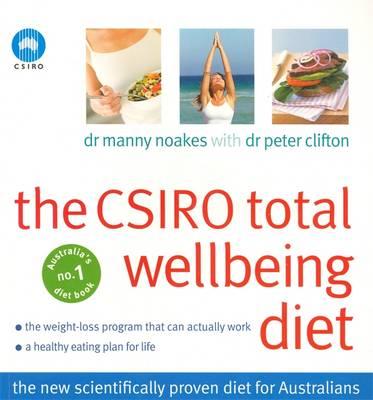 Every day, I get asked what’s the best way to eat to shed excess weight and Australia's CSIRO series of diet and recipe books is my go-to answer.
Every day, I get asked what’s the best way to eat to shed excess weight and Australia's CSIRO series of diet and recipe books is my go-to answer.
The first book in this series, The Total Wellbeing Diet, came out in 2013. What I particularly like about it is that it’s not just another diet, it's a long-term healthy eating plan that can make you feel great. Scientifically tested, and nutritionally balanced, it’s a higher-protein, lower-carb version of a weight loss eating plan.
Book 2 in the series comes with a summary of the essential principles of the diet; over 80 new recipes, and a simple, 'do anywhere' exercise program.
Since then, there has been Fast ‘n’ Fresh recipes and Low Carb Diet Books 1 and 2 plus a similar book on gut health.
In addition to the books there’s an online 12-week program you can try.
4. How to be a Healthy Vegan – Caroline Trickey
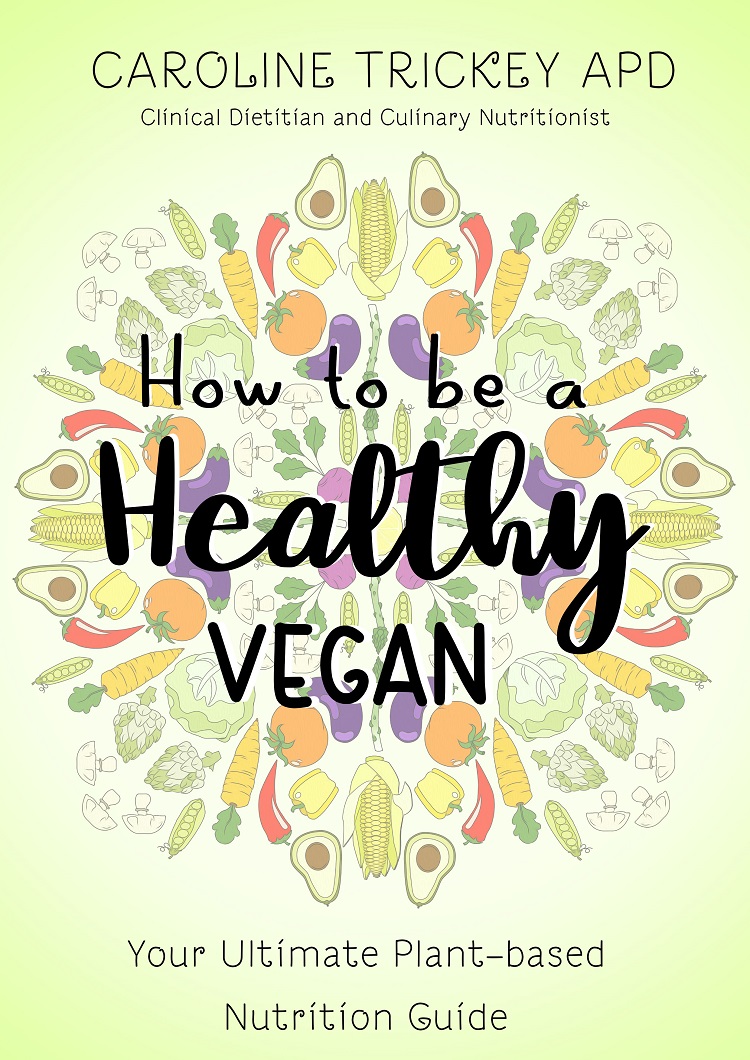 My dietitian friend, Caroline, often cooks with lentils, chickpeas, dried beans and tofu. She makes plant-based meals taste really delicious, as well as making food preparation easy and effortless.
My dietitian friend, Caroline, often cooks with lentils, chickpeas, dried beans and tofu. She makes plant-based meals taste really delicious, as well as making food preparation easy and effortless.
She’s not a vegan but loves cooking, having been a caterer in an earlier career. In this ebook, she explains how a well-planned vegan intake can meet nutritional needs and provide health benefits in the prevention of illnesses.
It’s a must-read if you’re serious about making your meals plant-based. Cost $9.99.
5. Veggie-Licious – Caroline Trickey
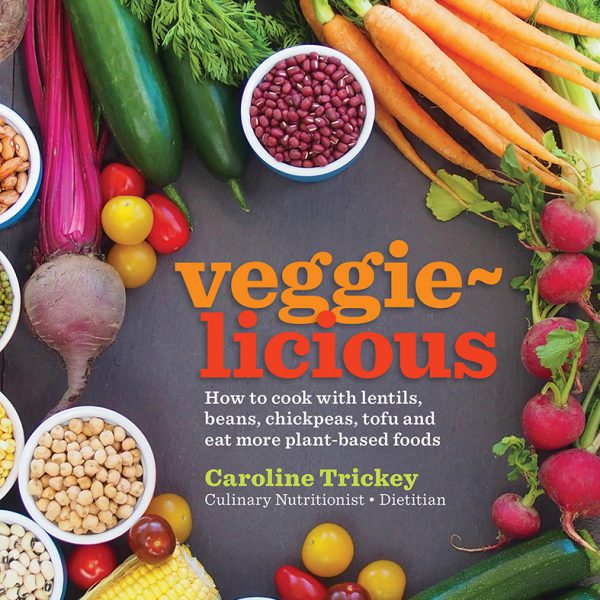 Caroline continues the veggie theme in this book. If you want to learn more about legumes and how to cook them, this is the book for you.
Caroline continues the veggie theme in this book. If you want to learn more about legumes and how to cook them, this is the book for you.
Here are 100 veg-centric recipes – even if you are not a ‘well-seasoned’ cook!
6. The Feel-Good Family Food Plan - Joanna McMillan with Melissa Clark
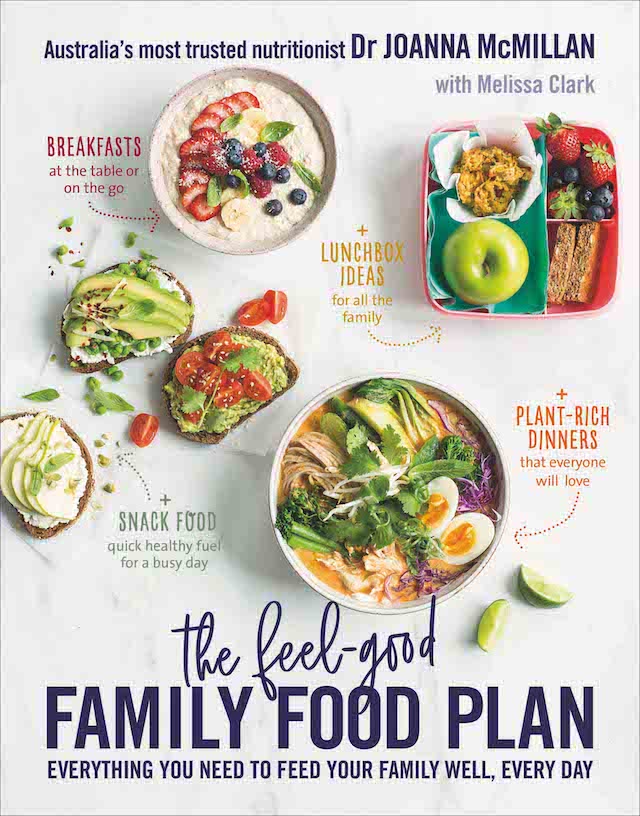 My friend Joanna McMillan, along with caterer Mel Clark, offers 60 healthy recipes to produce easy, week-night meals. I love that this book does the thinking for you. You’ll get delicious home-cooked food on the table, even on the most hectic of work and school days.
My friend Joanna McMillan, along with caterer Mel Clark, offers 60 healthy recipes to produce easy, week-night meals. I love that this book does the thinking for you. You’ll get delicious home-cooked food on the table, even on the most hectic of work and school days.
It’s packed with simple solutions, easy-to-follow advice and expert tips for savvy shopping, storing and freezing. It offers dinners the whole family will love, plus 4 weeks of meal plans to take the stress out of cooking.
7. The Mediterranean Diet - Dr Catherine Itsiopoulos
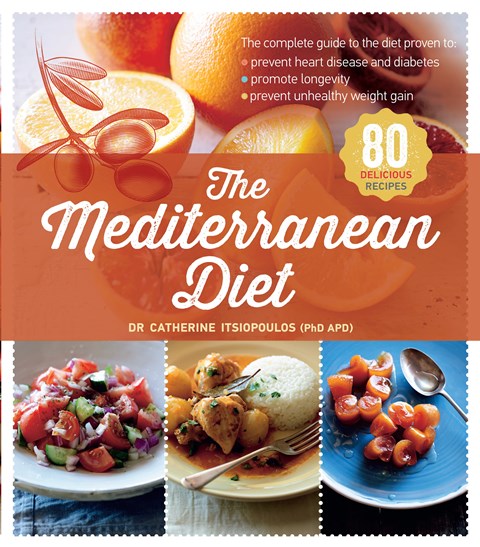 This is a how-to book plus a cookbook all in one, and one I really like! Dr Catherine Itsiopoulos is the child of Greek immigrants, she has seen lots of meals cooked at home by passionate and traditional cooks such as her mother and mother-in-law. I have reviewed the book here. Greek-style cooking such as a Greek salad, Greek chicken with lemon, suits our hot sunny climate and is big on flavour and beneficial to your health.
This is a how-to book plus a cookbook all in one, and one I really like! Dr Catherine Itsiopoulos is the child of Greek immigrants, she has seen lots of meals cooked at home by passionate and traditional cooks such as her mother and mother-in-law. I have reviewed the book here. Greek-style cooking such as a Greek salad, Greek chicken with lemon, suits our hot sunny climate and is big on flavour and beneficial to your health.
8. Mindless Eating – Brian Wansinck
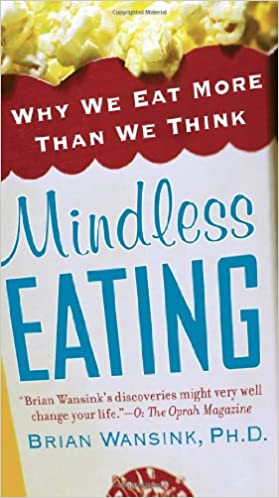 I’m sure we can all remember occasions when our hand has gone mechanically from packet to mouth without us even realising how much we’ve eaten. Suddenly, we reach into the packet for more only to find it’s empty! We all need to eat more mindfully. One way is to first realise that portions have increased in size over the past 10 years (an oft-overlooked cause of obesity) and you don’t need to finish everything in front of you! This is something something I’ve written about over and over again.
I’m sure we can all remember occasions when our hand has gone mechanically from packet to mouth without us even realising how much we’ve eaten. Suddenly, we reach into the packet for more only to find it’s empty! We all need to eat more mindfully. One way is to first realise that portions have increased in size over the past 10 years (an oft-overlooked cause of obesity) and you don’t need to finish everything in front of you! This is something something I’ve written about over and over again.
I really love this book even though the author Wansink has been exposed for creating extra studies from his research stats. I like to suggest it for both his wonderful experiments – his M&Ms experiment as well as his experiment where students eat a bowl of popcorn while watching a video. It’s fun and well-written.
9. Just Eat It - Laura Thomas
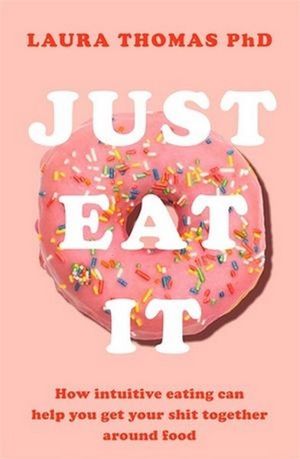 Say “No” to restrictive dieting, disordered eating and punishing exercise with this anti-diet guide from UK dietitian Laura Thomas. It’s just so refreshing to read! Just Eat It isn’t just a book.
Say “No” to restrictive dieting, disordered eating and punishing exercise with this anti-diet guide from UK dietitian Laura Thomas. It’s just so refreshing to read! Just Eat It isn’t just a book.
It’s part of a movement to help us take back control over our bodies. To reject the guilt and anxiety associated with eating and, ultimately, to help us feel good about ourselves and ban the obsession with body shape and size
10. Three Veg and meat - Olivia Andrews
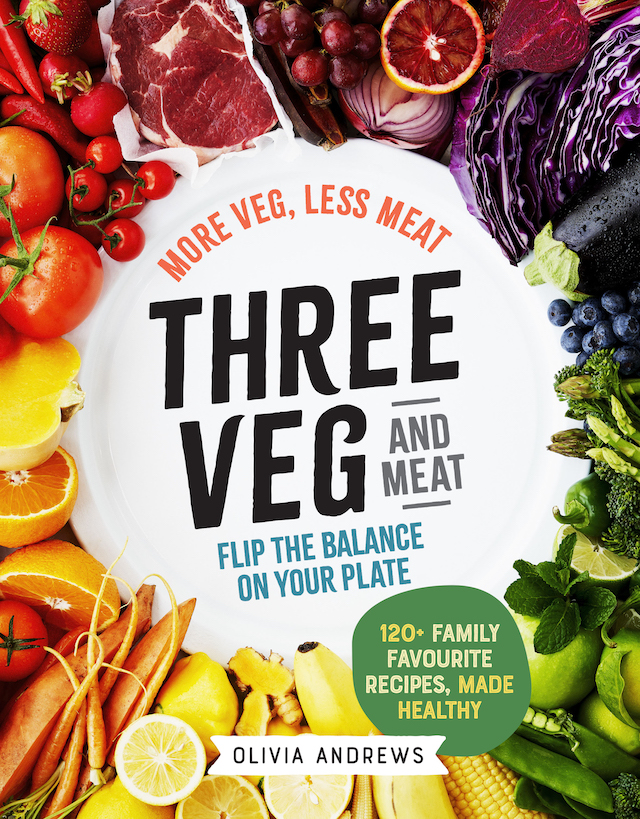 Take your favourite meals, then make them healthier. That’s the promise behind this book Three Veg and Meat, (great title) which shows you how to make the veg the hero on your plate.
Take your favourite meals, then make them healthier. That’s the promise behind this book Three Veg and Meat, (great title) which shows you how to make the veg the hero on your plate.
It offers a failsafe, family-friendly meal plan that makes veg the hero, for those scaling back but not cutting out meat altogether. It’s been dubbed the “new flexitarianism”. This is the way I like to eat - more healthy vegies with less (but not no) meat!
The author Olivia Andrews has taken our favourite dinner dishes such as roasts and burgers and magically flipped the balance to more veg and less meat. Try her Chick-in Schnitzels, Mushroom Stroganoff with Beef and Not-so-creamy Chicken Pasta and you won't ever want to flip back.
11. Ferment for Good - Sharon Flynn
I really like this great book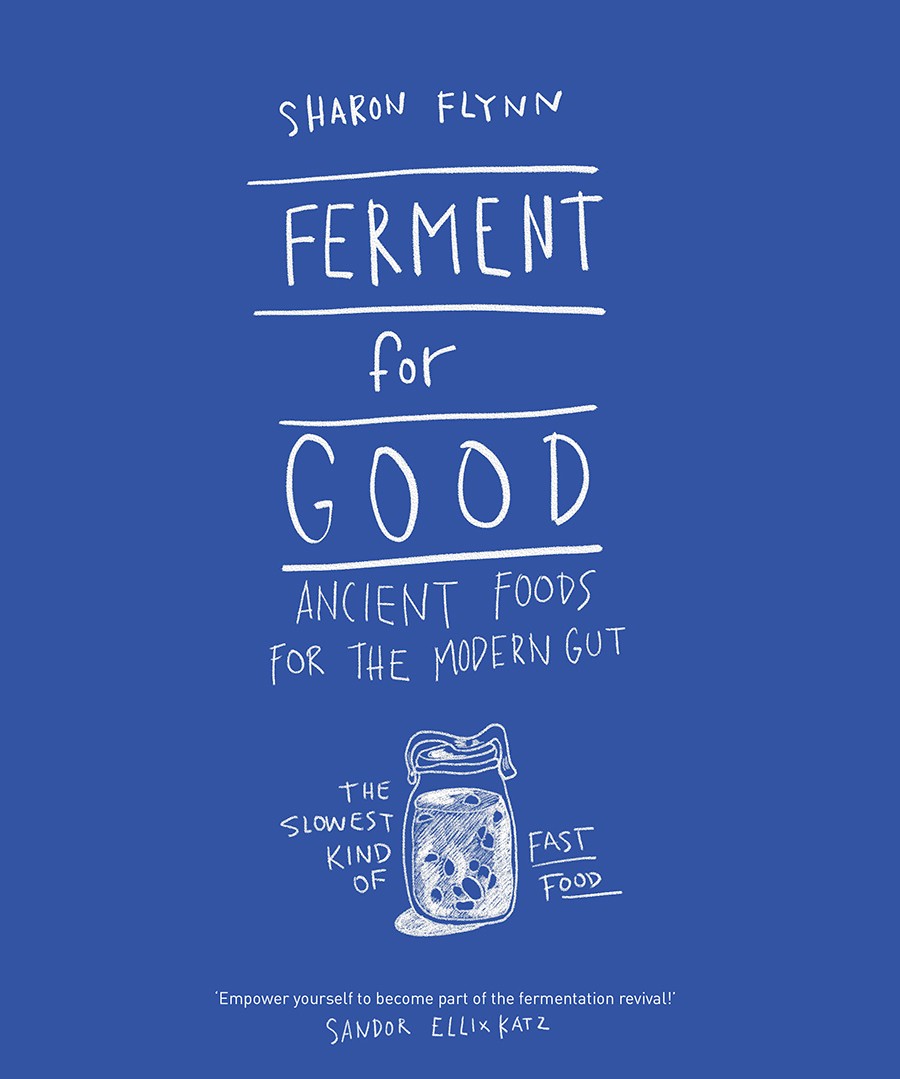 from Sharon Flynn, Ferment for Good. In a nutshell, she says fermented foods such as sauerkraut and kefir are like ancient foods for the modern gut. Too true. It’s a beautifully presented and written book that’s also passionate and caring. What’s more, it’s Australian.
from Sharon Flynn, Ferment for Good. In a nutshell, she says fermented foods such as sauerkraut and kefir are like ancient foods for the modern gut. Too true. It’s a beautifully presented and written book that’s also passionate and caring. What’s more, it’s Australian.
The author exhorts her readers to join her, to follow her journey, to use her recipes and to share the foods as people have done for centuries. You can read the review of it here.
12. Wild Fermentation - Sandor Ellix Katz
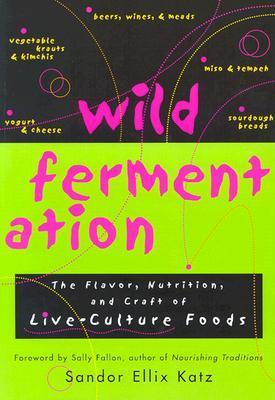 In a similar vein, is the first book on fermentation by Sandor Ellix Katz called Wild Fermentation.
In a similar vein, is the first book on fermentation by Sandor Ellix Katz called Wild Fermentation.
This explores the traditions of miso, sprouted grains, pumpernickel, essene bread, sourdough bread, sauerruben (turnip sauerkraut), sour beets plus kimchi of various sorts.
13. Eat Yourself Healthy - Dr Megan Rossi
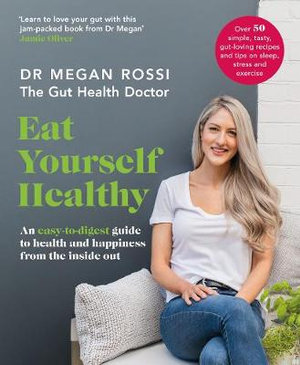 And let’s not forget the recent book called Eat Yourself Healthy, a lively, go-to lifestyle guide for a happy gut written by the Gut Health Doctor Dr Megan Rossi who is an Australian dietitian living in London.
And let’s not forget the recent book called Eat Yourself Healthy, a lively, go-to lifestyle guide for a happy gut written by the Gut Health Doctor Dr Megan Rossi who is an Australian dietitian living in London.
The bottom line
Whether you’re a vegetarian, vegan or eat meat/fish/chicken, or follow a special diet for a medical problem, you’re bound to find a book you like here. And let’s face it – a book with pictures of the final finished dish is still something we all want. Something we can hold in our hands.


